KURABURI: A senior police officer expelled welfare workers and journalists from a community hall housing 86 boatpeople north of Phuket today, sending mixed messages to Thailand and the world.
About the same time that Colonel Winai Kongkeaw, the Superintendent of Kuraburi Police Station, suddenly interrupted a revealing interview, a spokesman for the military's Internal Security Operations Command in Bangkok was telling the media that police need help in coping with the influx of boatpeople.
Just what is meant by ''help'' remains the key issue.
Does ''help'' mean fairly addressing the huge human trafficking problem being experienced in Thailand?
Or does ''help'' mean rubber-stamping the present process that frees Thailand from international obligations and leaves boatpeople open to all kinds of abuses?
Conflicts are now developing between Thai government authorities who ''help'' police to quickly declare boatpeople as illegal immigrants and other welfare workers and residents along the Andaman Coast who are now pointing out that the boatpeople are actually victims of human trafficking.
Thailand has a huge problem. Thousands of Rohingya and Bangladeshis are flowing south towards Malaysia, paying agents to get them there.
But once the passengers are on board vessels, the equation changes and the abuse usually begins, turning people who have volunteered to be smuggled south into human trafficking victims.
Most of them, if they survive the sea voyage, are kept in secret jungle camps in southern Thailand, close to the Malaysian border, and ransomed to relatives.
Some are raped, others die from disease and malnutrition. Many are abused.
WHEN COLONEL Winai interrupted the welfare workers and journalists during today's interview, one of the boatpeople had just revealed the numberplate of a pickup involved in trafficking members of the group.
That kind of information doesn't suit police along Thailand's Andaman Sea coast. Trafficking is not the problem - it's illegal migration.
Police also don't want to have to pay for food and accommodation for boatpeople because there is no budget to cover the cost as it rises, day by day.
As a result, there are virtually no arrests for human trafficking. The boatpeople mostly get south, in the hands of traffickers, and end up where they want to be - in Malaysia.
Apprehended boatpeople, whatever their claims to being trafficked, are almost always declared to be illegal immigrants and transferred with speed to Immigration.
Before long, they are back on the water, in the hands of traffickers again, sailing south.
Most of the group of 86 being held in Kuraburi are likely to be recycled in this way, whatever claims they might have to be victims of human traficking.
REPORTERS from Phuketwan were in the same community hall on December 26 last year, interviewing as best as possible a group of newly-arrived boatpeople. That group claimed they'd been arrested by the Burmese Navy and handed over to traffickers.
The traffickers, according to the boatpeople, killed 12 of them, throwing the bodies overboard, and abused many others. The boatpeople certainly had the scars to prove they'd been brutally treated.
Yet the local police in Kuraburi declared them to be illegal immigrants, not human trafficking victims.
It's not known whether, having been delivered back into the hands of traffickers on deportation from Thailand, that large group of men, women and children made it to the promised land of Malaysia.
DOWN the highway from Kuraburi towards Phuket there's a roadblock, a checkpoint where all drivers are today being asked to roll down their windows, and sometimes to get out to take drug tests.
The armed officials also check the vehicles to see whether there are trafficking victims hidden inside. This is the community reaction to more than five years in which human trafficking has flourished along the Andaman coast, north of Phuket.
Some people condone it, others find it objectionable and fear what it means for Thailand.
The District Chief of Takuapa, the next big town south of Kuraburi, sees the issue entirely differently to the police in Kuraburi.
He believes what's happened along the Andaman coast, with locals profiting and conspiring to trade people for cash, is morally wrong.
Anyone found at the checkpoint carrying boatpeople will be arrested and accused of trafficking.
The real solution to the problem lies in Burma and Bangladesh, where the industry in trafficking people continues to grow.
All Thailand has to do is face the truth, and tell its neighbors to stop the ethnic cleansing. The flow of people heading south will probably slow and eventually halt.
There is no doubt that the abuses, rapes and deaths of boatpeople are flourishing in Thailand and will continue as long as the wrong kind of ''help'' is being provided to the traffickers.

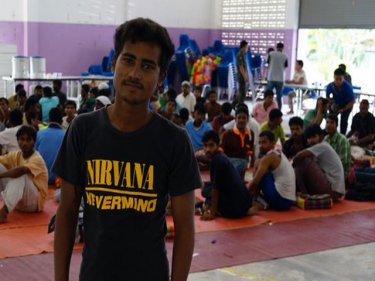





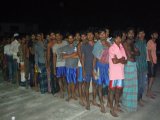
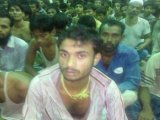
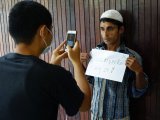
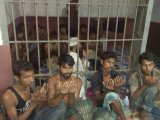

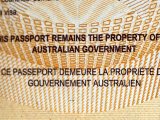
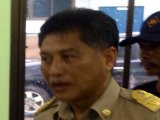
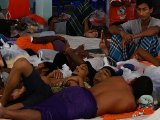
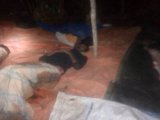




If the boatpeople where ever they come from, are welcome in Malaysia. Why not make it legal, that they kan have free public transportation to the border???? Be in mind, that the boat people will still arrive, and send them back are not the solution.
Posted by Lars on November 14, 2014 02:14
Editor Comment:
The boatpeople mostly are being forced out of Burma. Burma does not want them back. The answer is for Burma to be made to treat them as human beings.